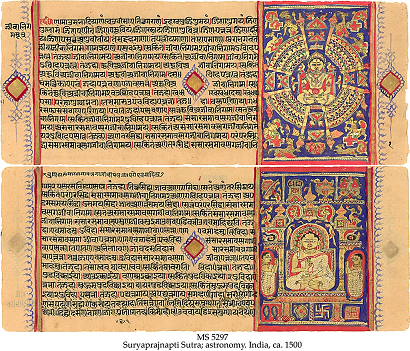Chitrakuta
And to that mountain paradise set on fire
by the red blossoms of the kimsuka tree,
honeycombs hanging like buckets,
marking-nut trees, the cry of the moorhen,
the bleat of the peacock, the herds
of elephants and the echoing of birds,
they arrived with open eyes. Sita
gathered firewood and fruit while the brothers
caught and killed some quick deer, rabbit,
wild fowl. Famished, they ate on the riverbank.
The next day readying for the long darkness
ahead, Lakshmana sacrificed a black antelope
with a splotch of red on the skin between its horns.
Arrows removed, bleeding stanched, the animal
was gently strangled then laid down
with its legs pointing North, then stroked
and pleasured, washed in all the openings
by which its life-spirit had fled: mouth, nose,
eyes, ears, navel, penis, anus, hooves.
In the beginning, the gods accepted man
as victim. Later, the ability to be sacrificed
passed from him into antelope and horse.
From horse into cattle, from cattle
into sheep, from sheep into goat, then from
goats into the earth, so all the world
was touched by our humility, our
complicity. Outside the leaf-thatched hut,
the animal was raised on a spit and roasted
until it had attained a deep, dark brown colour.
Then, chanting the appropriate verses, taking care
not to split the bones, Rama carved the animal
limb by limb, cut by cut, setting aside the grain
of its hair, the pumice of its skin, taking into him only
the fire of its flesh, the sublime fat of its marrow.
(After Valmiki’s Ramayana: Ayodhyakanda, sargas 55-56 in the vulgate/Gita Press edition)
Tataka
Sage, tell me, who is she, this
disfigured one with the rage
and force of a thousand
elephants? How does
a woman come to be this strong
that whole armies
crossing into her forest are simply torn
to strips of skin and lumps
of half-chewed flesh?
Rama, she is Tataka,
once the most beautiful and tender woman
in the world, jewel of a daughter
to the virtuous and powerful Suketu,
wife to the gentle Sunda,
mother of the fearless Maricha.
It happens that her husband
was killed and
she and her son cursed
with these, the hideous
unbearable forms you see.
Now she hates Agastya and all of us
with every drop of her being.
Sage, who killed her husband Sunda?
Who disfigured Tataka’s body?
Rama, you must never hesitate
to kill a woman, not
for a second. This is the
immortal unwavering
rule for men charged with
the burden of kingship.
(After Valmiki’s Ramayana: Balakanda, sarga 25)
Rama’s Servants
|
Punisher’s hooked discus |
Dharma’s bladed discus |
Time’s hooked discus |
|
Vishnu’s bladed discus |
Indra’s bladed discus |
Vajra (h-bomb) |
|
Siva’s lance |
Brahma’s Crest |
Aishika (guided missile) |
|
Brahma’s artillery |
Time’s noose |
The Tower |
|
noose of Dharma |
Vengeance’s noose |
noose of chemical rain |
|
The Drier |
The Drencher |
Pinakin’s ballistic missile |
|
Agni’s long range fire thrower |
Vayu’s air to air missile |
The Drainer |
|
The Horse-head missile |
Vilaapana (bomb) |
The Wrester |
|
Kankila (death machine) |
The Peacemaker |
Kaapaala (sniper rifle) |
|
Mohana (poison gas) |
Kankana (assault rifle) |
Taamasa (cruise missile) |
|
Nandana (gilded sword) |
Saumana (tactical missile) |
Varunastra (heavyweight torpedo) |
|
Maanava (anti-tank missile) |
Brah-mos (hypersonic missile) |
Prasvapana (anti-ship missile) |
|
Sudarshan (laser–guided bomb) |
Saura (thermobaric bomb) |
Maayaadhana (cluster bomb) |
|
Nirbhay (subsonic missile) |
The Dispossessor |
The Cooler |
|
Tvastr’s deadly Sudaamana |
Prithvi (short range ballistic missile) |
Agni (intercontinental missile) |
|
Sagarika (submarine-launched missile) |
Raudra (rocket launcher) |
Aindra (sub machine gun) |
|
Paasupata (interceptor missile) |
Gaandharva (fire bomb) |
Dhanush (anti-ballistic missile) |
|
The Yawner |
The Humidifier |
Vidhwansak (anti-material rifle) |
|
Aakash (surface-to-air missile) |
Brahma’s cordon |
The Monster (missile) |
|
Vaayavya (artificial weather machine) |
Shivalik (multi grenade launcher) |
Shaurya (glide missile) |
Calling his servants in, Rama
caressed their heads, their
shoulders, their
elbows and knobs, blowing
lightly on their deadliest
points, their sharp
mouths still, licking
the thought of human
bodies with the last
life-sparks leaping
out of them; and when
as Rama’s loyal
servants they drew
close letting themselves
be touched and touched so,
he closed
his eyes
whispered:
form into name into kill
(After Valmiki’s Ramayana: Balakanda, sarga 28)

